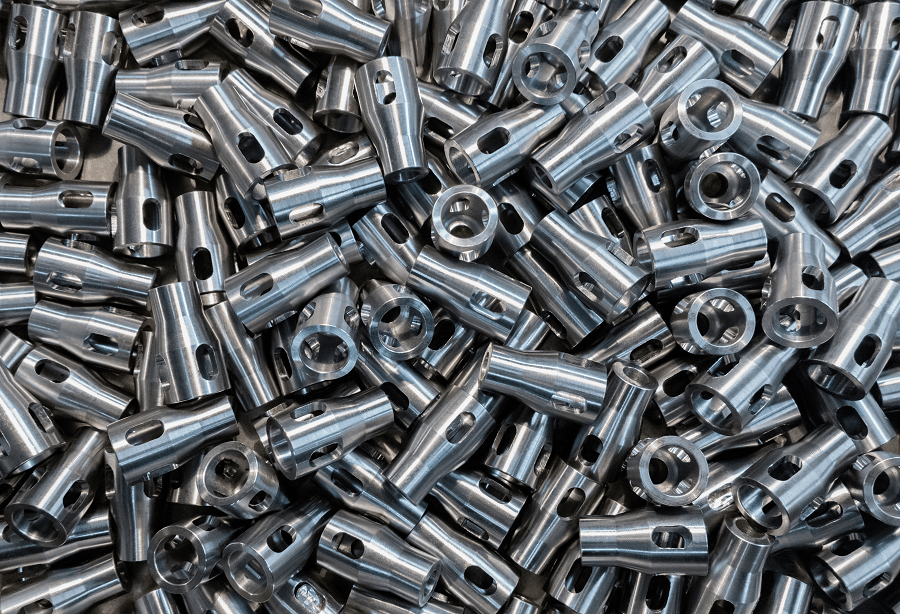Stainless steel is an alloy that contains at least 10.5% of chromium by mass. Chromium is a chemical compound that gives stainless steel is shiny quality. Chromium is also highly corrosion resistant at normal temperatures, supplying the steel with its “stainless” quality. Depending on the grade of the steel, nickel may also contribute to the alloy’s shine and corrosion resistance.
Preparing for Heat Treatment
Stainless steel’s attractive appearance, excellent dimensional stability, and general corrosion resistance give it many aesthetic and utilitarian uses. Precision parts for various types of equipment are made from the alloy. Freeing them of accumulations (a.k.a. coatings) with stainless steel parts cleaners — particularly in preparation for heat treating — is the focus of this entry.
Before cleaners are selected, it’s important to determine exactly what’s needed to remove the coatings in question. Because chromium readily oxidizes at high temperatures when oxygen is present, stainless steel is heat treated in an oxygen-free furnace atmosphere. However, surface oxidation can occur even in non-oxygen furnace environments when coatings are left in place.
Properly Removing Coatings
Most stainless steel parts require stainless steel parts cleaners that remove coatings of grease, dirt, oil residue, and other common soils that accumulate on parts in industrial work settings. However, you occasionally encounter a coating that a solvent can’t be remove, such as rust resulting from pitting damage that has penetrated the surface of the metal.
If rust were at the metal’s surface, you could one of our eco friendly rust removers to get rid of it. But a deeper accumulation of rust needs to be grinded or sandblasted way, and the area from which it was removed should be buffed until it has the surface consistency of the remainder of the part. Then, stainless steel parts cleaners can be applied to remove lighter coatings that would oxidize in the furnace, such as paint, decals, and the coatings mentioned above.
Flux Residue Remover Necessary?
Unless the parts you must clean are too large to fit inside the heat treating furnace, you won’t apply flux to the metal before placing it in the furnace. The furnace presumably maintains a pure hydrogen / nitrogen atmosphere to prevent chromium from oxidizing. Consequently, no flux is needed to prevent oxidation. This means there is no need to invest in a flux residue remover.
On the other hand, if the parts are too large for the furnace, and they are heat treated in open air with a high-powered torch, flux would be applied to any section of the part that could reach the temperature for the “transformation point” of chromium — the point at which the microstructure of chromium’s surface layer starts to transform into a stable layer of oxide.
Need to Clean Stainless Steel?
If so, Ecolink has stainless steel parts cleaners that may be right for your needs, depending on the grade of the steel and the kind of coatings / soils you need to remove. If one of our stock cleaners isn’t the perfect fit, we can formulate a custom solution that is. To get started on selecting a cleaner for stainless steel, call us today at 800-563-1305, or use our contact form. We look forward to supplying environmentally preferred stainless steel parts cleaners!















